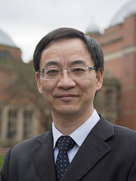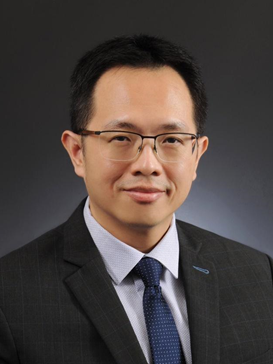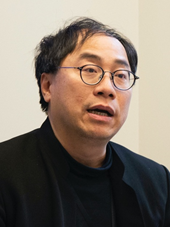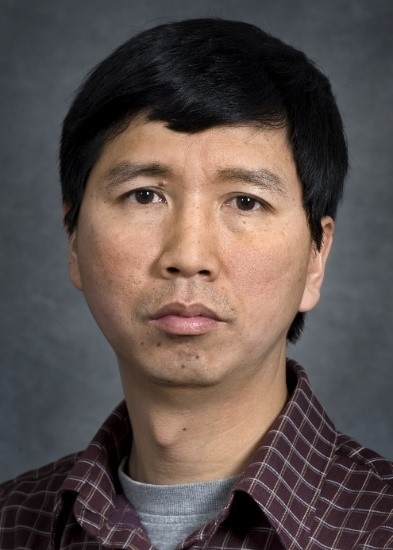 |
|
KEYNOTE SPEAKERS

Prof. Andreas Löschel
Environmental/Resource Economics and Sustainability
Ruhr University Bochum
|
Nudging in order to save the climate - some field experimental evidence
Abstract:
Short Bio:
From September 2021, Andreas Löschel is Professor of Environmental/Resource Economics and Sustainability at the Ruhr University Bochum. Since 2011 he has chaired the Expert Commission of the German Government to monitor the energy transformation. He has been a Lead Author of the Intergovernmental Panel on Climate Change (IPCC) for the Fifth and Sixth Assessment Report and a member of the German National Academy of Science and Engineering (acatech). In the Frankfurter Allgemeine Zeitung (F.A.Z.) economist ranking Andreas Löschel has been several times among the 50 most influential economists in Germany.
|

Prof. Hongming Xu
Vehicle Research Centre
University of Birmingham
|
Intelligent Optimization of Energy Usage in Future Mobility Systems
Abstract:
Short Bio:
Professor Hongming Xu is Head of the Vehicle Research Centre at the University of Birmingham and ‘Distinguished Visiting Professor’ at Tsinghua University. With BEng and MEng degrees from Hefei University of Technology obtained in 1982 and 1984 respectively, he received his PhD from Imperial College in 1995. He was a Technical Specialist at JLR prior to joining UoB in 2005 and becoming professor in 2009. He has over 200 SCI journal papers and 200 conference publications including 90 SAE Papers with a Scopus H-index of 41 in powertrain research added by some 40 invited talks and keynotes. He is a Fellow of SAE International and IMechE.
|

Prof. Poh Seng (PS) Lee
Department of Mechanical Engineering
National University of Singapore
|
Pathways for Decarbonization of Data Center
Abstract:
COVID-19 pandemic situation has accelerated the pace of digitisation and caused a surge in demand for cloud-based services, 5G, artificial intelligence and the Internet of Things (IoT). Data centres, which store, process, and disseminate data, are the backbone enabling the global digital economy and are projected to grow at a CAGR of 15.1% from 2019-2025. However, data centres are also energy guzzlers: according to IEA, data centres are already accounting for 200 TWh per year in energy consumption, which is approximately 1% of the total electricity demand worldwide. Associated with this, the greenhouse gas emissions is approximately 2% of global total: nearly the equivalent of the entire global airline industry. Hence the growth of data centres should be done sustainably to manage the energy use and environmental impact. This talk will present an overview of the different pathways for the decarbonisation of data centres including innovative cooling techniques, green energy sources (renewable energy, hydrogen), AI/machine learning and modern IT infrastructure. Then, the speaker will introduce the Sustainable Tropical Data Centre Testbed (STDCT) initiative that he is leading to create a co-innovation platform for facilitating cooperation between the data centre industry stakeholders and educational institutions for the development of innovative data centre cooling solutions.
Short Bio:
Dr. Poh Seng (PS) Lee is an Associate Professor of Mechanical Engineering at the National University of Singapore (NUS). He currently serves as the Executive Director of Energy Studies Institute, Director of Singapore Energy Centre, Director of Centre for Energy Research & Technology (CERT) and Programme Director of Cooling Energy Science & Technology Singapore (CoolestSG) national consortium. Prof Lee’s research interests include high performance cooling techniques (in particular single and two-phase microchannel cooling), energy efficient air conditioning and low-grade waste heat recovery. He is a Fellow of American Society of Mechanical Engineers (ASME), Energy Institute (EI) and Institution of Engineers Singapore (IES). Prof Lee is passionate about translating R&D outcomes into innovations & enterprises and have founded CoolestDC Pte Ltd to commercialise his group’s liquid cooling solution for sustainable tropical data centres.
|

Prof. Thomas Olofsson
Department of Applied Physics and Electronics
Umeå University
|
Positive Energy Districts (PED) – An urban concept in energy use and infrastructure
Abstract:
There is a large variety of transformation concepts in energy use and infrastructure. These transformation concepts often consist of three components: energy production, renewable energy, and energy efficiency. Additionally, they are also the main components of Positive Energy Districts (PED). The PED concept has received attention in several European countries. It focuses on energy-efficient and energy-flexible urban areas or groups of connected buildings that produce net-zero greenhouse gas emissions and actively manages an annual local or regional surplus production of renewable energy. They require integrating different systems and infrastructures and interaction between buildings, the users, and the regional energy production, mobility, and ICT systems, while securing the energy supply and a good life for all in line with social, economic, and environmental sustainability. This presentation introduces the basic concept with barriers and opportunities for using PED as an urban transformation concept in energy use and infrastructure.
Short Bio:
Thomas Olofsson is Head of Department (Prefekt) of Applied Physics and Electronics at Umeå University. He is a professor in energy efficiency, with a focus on buildings. His research focuses on reducing building energy end-use with improved indoor comfort. The scope is to propose, implement and evaluate strategies for increased energy performance and thermal comfort, evaluations of building energy efficiency, and parameter identification. Methods include analytical models, such as simple regression models and more complex data-driven approaches, and physical simulations. Investigations also have a user and stakeholder perspective to map behavior, perception, adaptation, and attitudes. Studies include HVAC systems and indoor climate, building components, building construction systems, and district heating.
|

Prof. Perry Yang
Eco Urban Lab
Georgia Institute of Technology
|
Urban Systems Design for Low Carbon Urban Energy Districts: Tokyo, Shenzhen and Atlanta
Abstract:
Emerging technologies are changing how cities are perceived, analyzed, designed and constructed as a cyber-physical environment. To address complex urban problems, urban design is becoming data-driven. Cities are to be designed and redeveloped for being more adaptable and resilient to societal, urban and climate changes. The talk introduces smart urban districts in Tokyo, Shenzhen and Atlanta as living laboratories. The following questions will be addressed: how digital technologies fundamentally change the way we design cities, and how urban design enhances energy performance and sensuous quality in an urban environment, in which a city is seen as an urban sensing system. The presentation is structured by four components: 1) data-driven cities; 2) urban data analytics from a nexus of energy, mobility and human perceptions; 3) decisions platform; 4) concluding remarks on smart urban systems design from model to implementation.
Short Bio:
Perry Yang is Director of Eco Urban Lab at Georgia Institute of Technology. Yang’s work focuses on incorporating data analytics into urban design to improve ecological and energy performance of cities. He published extensively in this area, including Urban Systems Design book he co-edited in 2020. He has been awarded more than ten prizes in international design competitions that include the 2009 World Games Park at Kaohsiung, featured by CNN as “an eco-friendly venue”. Before joining Georgia Tech faculty, he was a SPURS Fellow at MIT from 1999 to 2000 and an assistant professor at National University of Singapore from 2001 to 2008.
|

Dr. Tianzhen Hong
Building Technology & Urban Systems Division
Lawrence Berkeley National Laboratory
|
Urban buildings and energy systems: opportunities and challenges for Energy Efficiency, Demand Flexibility, and Climate Resiliency
Abstract:
Cities consume over two-thirds of the world's energy and account for more than 70% of global CO2 emissions. Cities are facing challenges of aging infrastructure, impact of climate change and extreme weather events. Urban energy systems are interconnected systems of buildings, microclimate, transportation, energy generation and storage. This talk will introduce research on urban buildings and energy systems done at LBNL, focusing on modeling and simulation of urban buildings and energy systems to improve their energy efficiency, demand flexibility, and climate resiliency, leveraging emerging opportunities in urban sensing, big data, modeling and simulation, artificial intelligence, and exascale computing.
Short Bio:
Dr. Tianzhen Hong is a Senior Scientist and Deputy Head of the Building Technologies Department. He leads the Urban Systems Group and a team with research on data, methods, computing, occupant behavior, and policy for design and operation of low energy buildings and sustainable urban systems. He actively contributed to international collaborations such as the 10-year U.S.-China Clean Energy Research Center on Building Energy Efficiency, IEA EBC Annex 53, 66, 79, 80, and 81. One of his software toolkits, CBES, won the 2019 R&D 100 Award. He is an IBPSA Fellow and ASHRAE Fellow. He received B.Eng. and Ph.D. in HVACR, and B.Sc. in Applied Mathematics from Tsinghua University, China.
|
|
|
|



